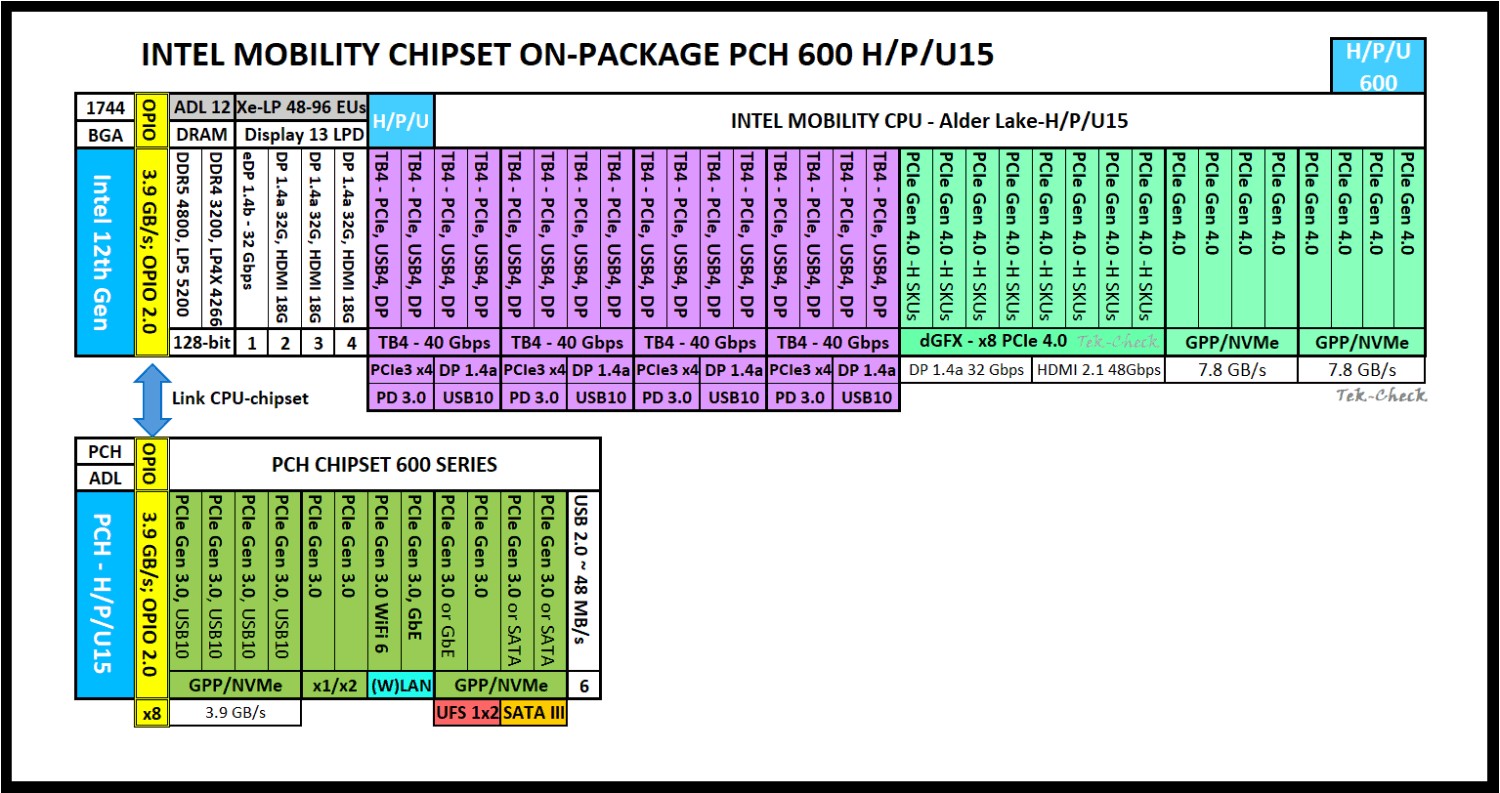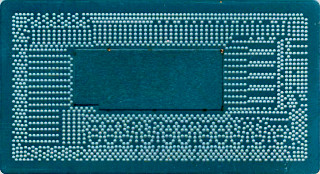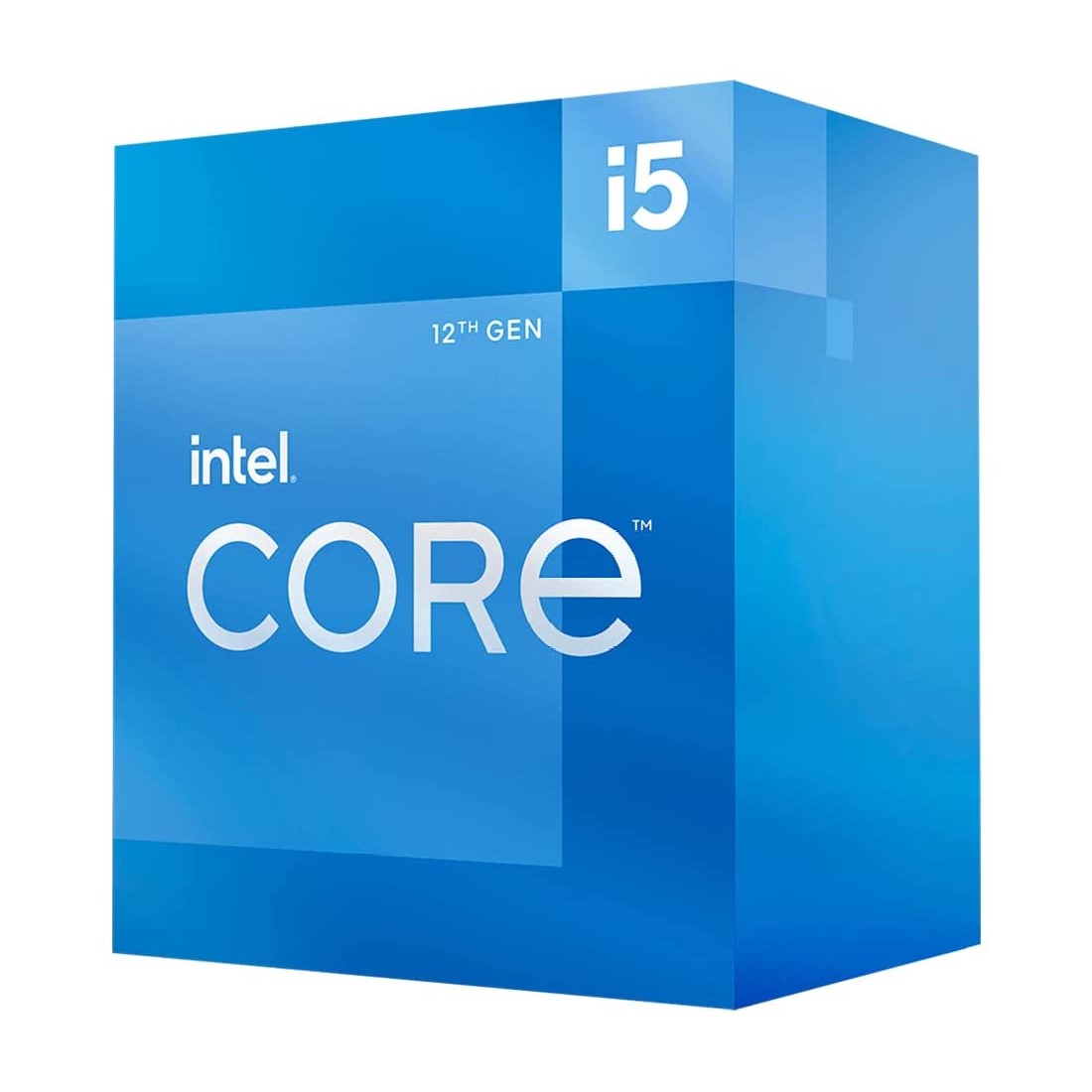

The Intel Core i5-1240P is a mobile processor featuring 12 cores, which was introduced in February 2022. It belongs to the Core i5 series and is based on the Alder Lake-P architecture with a BGA 1744 socket. This processor incorporates Intel Hyper-Threading technology, effectively doubling the core count of the performance cores to achieve a total of 16 threads. The Core i5-1240P is equipped with 12 MB of L3 cache and operates at a base frequency of 1700 MHz, with the potential to boost up to 4.4 GHz, contingent upon the workload. Manufactured using a 10 nm production process, the specific transistor count for the Core i5-1240P remains undisclosed. Additionally, the multiplier for this processor is locked, which restricts its overclocking potential.
The Core i5-1240P operates with a thermal design power (TDP) of 28 W, indicating its low energy consumption. This Intel processor is compatible with both DDR4 and DDR5 memory, utilizing a dual-channel interface. For connectivity with other computer components, the Core i5-1240P employs a PCI-Express Gen 4 interface. Additionally, it is equipped with the Iris Xe 80EU integrated graphics solution.
The Core i5-1240P features hardware virtualization, significantly enhancing the performance of virtual machines. It also supports IOMMU virtualization (PCI passthrough), allowing guest virtual machines to directly access host hardware. Applications that utilize Advanced Vector Extensions (AVX) will benefit from improved performance on this processor, particularly for computation-intensive tasks. In addition to AVX, Intel has incorporated the more recent AVX2 standard; however, AVX-512 is not included.
Physical
| Socket: |
Intel BGA 1744 |
| Foundry: |
Intel |
| Process Size: |
10 nm |
| Die Size: |
217 mm² |
| Package: |
FC-BGA16F |
| tJMax: |
100°C |
Processor
| Market: |
Mobile |
| Production Status: |
Active |
| Release Date: |
Feb 23rd, 2022 |
| Part#: |
SRLD9 |
Performance
| Frequency: |
1700 MHz |
| Turbo Clock: |
up to 4.4 GHz |
| E-Core Frequency: |
1200 MHz
up to 3.3 GHz |
| Base Clock: |
100 MHz |
| Multiplier: |
17.0x |
| Multiplier Unlocked: |
No |
| TDP: |
28 W |
| PL1: |
28 W |
| PL2: |
64 W |
Architecture
| Codename: |
Alder Lake-P |
| Generation: |
Core i5
(Alder Lake-P) |
| Memory Support: |
DDR4, DDR5 |
| DDR4 Speed: |
3200 MT/s |
| DDR5 Speed: |
4800 MT/s |
| Memory Bus: |
Dual-channel |
| ECC Memory: |
No |
| PCI-Express: |
Gen 4, 20 Lanes
(CPU only) |
Core Config
| # of Cores: |
12 |
| # of Threads: |
16 |
| Hybrid Cores: |
P-Cores: 4
E-Cores: 8 |
| SMP # CPUs: |
1 |
| Integrated Graphics: |
Iris Xe 80EU |
Cache
| Cache L1: |
80 KB (per core) |
| Cache L2: |
1.25 MB (per core) |
| Cache L3: |
12 MB (shared) |
| E-Core L1: |
96 KB (per core) |
| E-Core L2: |
2 MB (per module) |
Features
- MMX
- SSE
- SSE2
- SSE3
- SSSE3
- SSE4.2
- AVX
- AVX2
- FMA3
- SHA
- EIST
- Intel 64
- XD bit
- VT-x
- VT-d
- AES-NI
- TSX
- TXT
- CLMUL
- F16C
- BMI1
- BMI2
- ABM
- ADX
- RdRand
- TBT 2.0
|



